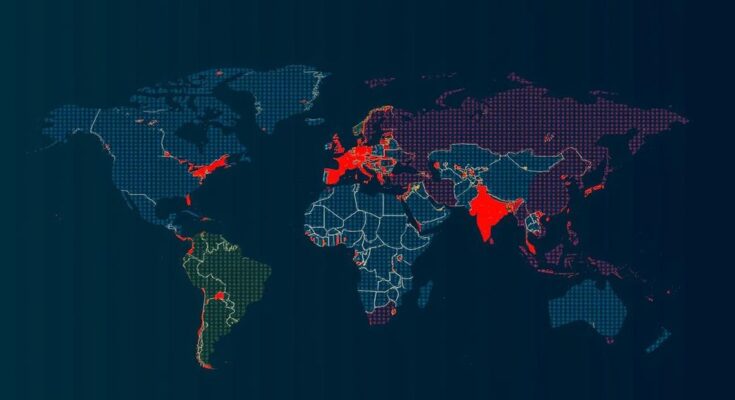A recent panel by FSI scholars highlighted urgent global threats, including climate change, the Russia-Ukraine war, challenges to democracy, and China’s rising influence. They emphasized the interconnected nature of these issues and stressed the importance of strategic actions to maintain democratic values and address climate challenges effectively.
In a recent discussion hosted by the Freeman Spogli Institute for International Studies (FSI), esteemed scholars addressed the pressing global threats confronting our world. They encompassed a spectrum of issues including climate change, the ongoing war in Ukraine, the geopolitical dynamics involving China, the deterioration of democratic institutions, and the complexities surrounding Israel and Hamas. This panel, part of Stanford University’s 2024 Reunion and Homecoming, was moderated by FSI Director Michael McFaul and featured contributions from experts Marshall Burke, Didi Kuo, Amichai Magen, Oriana Skylar Mastro, and Steven Pifer. One of the primary concerns articulated by Amichai Magen was the emergence of an “axis of misery” comprised of illiberal states such as Russia, Iran, and North Korea that threaten to dismantle the liberal international order. He emphasized the interconnectedness of these states and the potential loss of sovereign nations, raising alarms over Ukraine, Israel, and Taiwan, all of which face existential threats. Didi Kuo pointed out that threats to democracy are increasingly arising from domestic sources rather than external ones. She highlighted the alarming trend of democratically elected leaders undermining democratic structures from within, but also noted the resilience of democratic coalitions in countries such as France and Brazil which have successfully resisted illiberalism. Steven Pifer addressed misconceptions surrounding the war in Ukraine, refuting the narrative that Ukraine is destined to lose. Despite territorial gains by Russia, he pointed out the unsustainable cost of such victories and the determination of Ukrainians to prevail, citing the necessity of enhanced support from allies. Oriana Skylar Mastro provided insight on China’s ongoing ascendancy, challenging assumptions that its economic slowdown signifies a diminishing threat. She underscored the importance of strategic adjustment by the United States to maintain a balance of power and counteract China’s geopolitical maneuvers. Finally, Marshall Burke highlighted significant advancements in climate change mitigation, noting a 20% reduction in emissions since 2005. He acknowledged ongoing efforts under U.S. leadership while simultaneously cautioning that challenges remain in adequately preparing for future impacts of climate change. The conversation offers a sobering overview of the global landscape and underscores the need for sustained attention and action to navigate these complex interdependencies and threats.
The article discusses a panel of experts from the Freeman Spogli Institute for International Studies, convened to explore the multifaceted global threats currently facing the world. It highlights issues such as climate change, the war in Ukraine, competition with China, the health of democracies, and conflicts in the Middle East, illustrating the interconnected nature of these challenges. By offering insights from various scholars, the article contextualizes the urgent need for strategic responses to prevent the erosion of democratic values and the liberal international order.
In conclusion, the discussion during the FSI panel elucidates critical global issues, emphasizing the intertwined nature of international conflicts, democratic challenges, and climate change. The scholars advocate for increased awareness and proactive measures to safeguard democratic institutions and address the growing threats posed by illiberal regimes and geopolitical tensions. The insights provided underscore the need for a comprehensive and cooperative approach to navigate the complexities of the contemporary global landscape.
Original Source: fsi.stanford.edu




